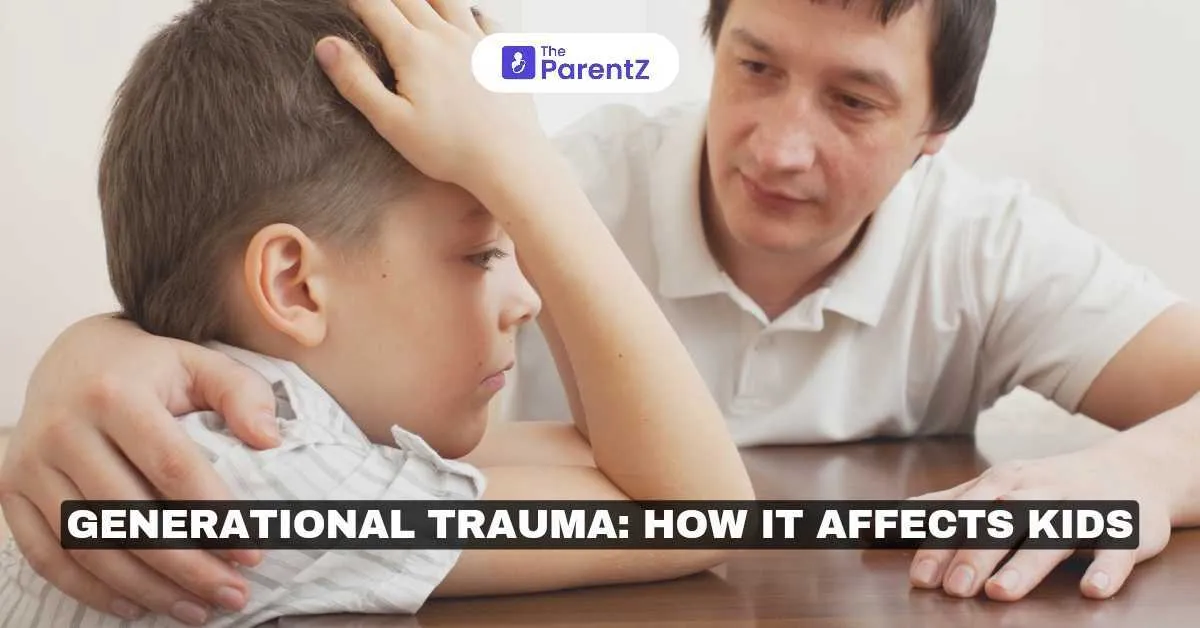Generational trauma, also known as inter-generational trauma, is the transmission of emotional and psychological stress from one generation to the next. While trauma is often thought of in mental health terms, recent research shows that its effects can go far beyond mental well-being and deeply impact physical health. Trauma from one generation can alter stress responses, weaken immune systems, and increase the risk of chronic diseases in descendants. This article explores how generational trauma impacts physical health, the science behind its transmission, and ways to break the cycle for future generations.
What Is Generational Trauma?
Generational trauma refers to the transfer of emotional wounds from one generation to the next. Trauma in parents or grandparents caused by experiences like war, abuse, discrimination, or poverty—can leave lasting imprints that get passed down, affecting children and grandchildren. Unlike personal trauma, generational trauma affects an entire family or community, embedding itself in attitudes, coping mechanisms, and even beliefs. This “inherited trauma” can shape how individuals respond to stress, sometimes without their awareness.
The Science Behind Trauma Transmission
Generational trauma can be passed down in two primary ways: biological changes and learned behaviors.
• Epigenetics: Epigenetics is the study of how environmental factors can alter gene expression without changing the DNA itself. Trauma-induced stress can cause these epigenetic changes, effectively “marking” genes in a way that influences how they’re expressed in descendants. For example, children born to parents who experienced extreme trauma may inherit a heightened sensitivity to stress, predisposing them to anxiety and stress-related physical health issues.
• Learned Behaviors: Trauma is also passed through behaviors, communication, and family dynamics. If family members model anxious or unhealthy coping strategies, children may adopt these behaviors, setting the stage for health issues later in life. Generational trauma can thus be reinforced by both genetic and environmental factors.
Physical Health Conditions Linked to Generational Trauma
• Cardiovascular Disease: Prolonged exposure to stress can increase the risk of heart disease. Generational trauma can heighten the body’s response to stress, making future generations more vulnerable to hypertension, heart disease, and other cardiovascular conditions.
• Immune System Disorders: Chronic stress from unresolved trauma can weaken immune functions over time, making individuals more susceptible to infections, autoimmune diseases, and chronic inflammation.
• Metabolic and Endocrine Issues: Trauma-induced stress can affect hormones related to metabolism, contributing to weight gain, diabetes, and thyroid problems in future generations.
• Mental Health Disorders with Physical Effects: Anxiety and depression, often linked to trauma, also affect physical health, leading to issues like chronic fatigue, insomnia, headaches, and digestive disorders.
Everyday Physical Effects of Generational Trauma
Generational trauma often manifests in daily physical symptoms that can go unnoticed or be misattributed to lifestyle choices. For instance, people may experience fatigue, sleep disturbances, or muscle tension without realizing these symptoms have roots in unresolved family trauma. Digestive issues, chronic pain, and hormonal imbalances are common physical effects that can persist across generations, affecting the quality of life.
Breaking the Cycle: Pathways to Healing
Addressing generational trauma can improve both mental and physical well-being. Here are some ways to begin breaking the cycle:
• Therapeutic Support: Trauma-focused therapy, such as cognitive behavioral therapy (CBT) or EMDR (Eye Movement Desensitization and Reprocessing), can help individuals process trauma, reducing its impact on physical health.
• Mind-Body Practices: Practices like mindfulness, meditation, and yoga are effective for managing stress, as they help calm the nervous system and regulate stress responses.
• Positive Family Communication: Open, honest communication about family history and trauma can help family members better understand their own responses to stress and foster healthier dynamics.
• Healthy Lifestyle Choices: Regular exercise, balanced nutrition, and adequate sleep can help modulate stress responses and counteract some of the physical effects of generational trauma.
Conclusion
The effects of generational trauma are often hidden but can significantly influence physical health. Recognizing these impacts and taking proactive steps to heal can not only benefit the current generation but also help future generations live healthier, more resilient lives. By understanding and addressing inherited trauma, we can reduce its grip on physical health, paving the way for stronger, healthier families.






